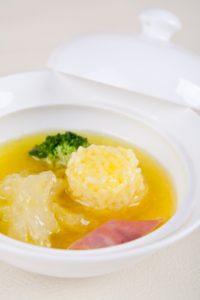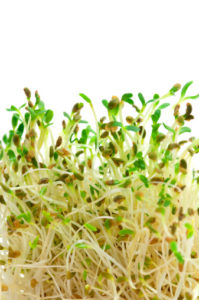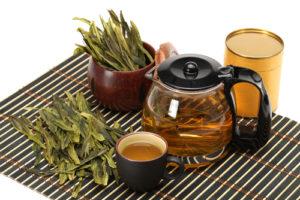
When you are expecting, everything you eat and drink directly impacts your child’s health. Because pregnancy affects your immune system, you and your unborn baby are more susceptible to the bacteria, viruses, and parasites that cause foodborne illness Everyday foods and beverages, even environmental factors, take on new meaning, as some may present a danger to your developing baby. Even if you don’t feel sick, some “bugs” like Listeria and Toxoplasma can infect your baby and cause serious health problems. Your baby is also sensitive to toxins from the food that you eat, such as mercury in certain kinds of fish.
Natural whole foods, and as lightly processed foods as possible, such as whole grains, lean meats, such as fresh wild fish cage-free chicken or eggs, seasonal fruits, fresh colorful vegetables and sea vegetables, legumes, and low-fat dairy should form the basis of your pregnancy diet. Be especially aware of items that you may want to avoid when you are expecting.
Undercooked animal foods—such as rare meat, raw oysters, clams, sushi, unpasteurized eggs, raw cookie or cake dough, and homemade eggnog, may contain an array of bacteria, viruses, and parasites. Undercooked beef meat may also contain E. coli. Undercooked poultry may contain bacteria such as Campylobacter or Salmonella. To reduce the risk of foodborne illness, test the doneness of meat, poultry, and fish with a food thermometer, cook eggs until they are no longer runny, and follow baking instructions, refraining from eating raw dough.
Use an instant-read food thermometer to check the internal temperature toward the end of the cooking time, but before the food is expected to be "done."
The food thermometer should be placed in the thickest part of the food and should not be touching bone, fat, or gristle. Check the temperature in several places to make sure the food is evenly heated.
✬ Cook all raw beef, pork, lamb and veal steaks, chops, and roasts to a minimum internal temperature of 145 °F as measured with a food thermometer before removing meat from the heat source. For safety and quality, allow meat to rest for at least three minutes before carving or consuming. For reasons of personal preference, consumers may choose to cook meat to higher temperatures.
✬ Cook all raw ground beef, pork, lamb, and veal to an internal temperature of 160 °F as measured with a food thermometer.
✬ Cook all poultry to a safe minimum internal temperature of 165 °F as measured with a food thermometer.
✬ Make sure to clean your food thermometer with hot, soapy water before and after each use!
✬ Large-dial oven-safe or oven-probe thermometers may be used for the duration of cooking.
✬ Because there are so many types of food thermometers, it is important to follow the instructions for your food thermometer.
These foods are prone to Listeria monocytogenes, bacteria that causes listeriosis, which may result in miscarriage, stillbirth, or other serious health problems.
Besides hot dogs and luncheon meats—which include deli ham or turkey, bologna, and salami -- other processed meats and seafood that may contain listeria include refrigerated pates or meat spreads, and refrigerated smoked seafood (such as salmon, trout, whitefish, cod, tuna, or mackerel). These items may be labeled as "nova-style," "lox," "kippered," "smoked," or "jerky."
Refrigerated smoked seafood is safe when it's part of a cooked dish, like casseroles. Luncheon meats and frankfurters are fine to eat, only if reheated until steaming hot, says Michael Lu, MD, UCLA professor of obstetrics, gynecology, and public health and author of Get Ready to Get Pregnant: Your Complete Pre-Pregnancy Guide to Making a Smart and Healthy Baby.
The raw milk controversy highlights that dairy products made from unpasteurized milk, raw milk itself and cheeses, such as Brie, feta, Camembert, Roquefort, blue-veined, queso blanco, queso fresco, and queso Panela may also contain listeria. Eat hard cheeses, such as cheddar or Swiss. Or, check the label and make sure that the cheese is made from pasteurized milk and do your research before consumption and know both sides of the argument!

Typically, the larger the fish—such as swordfish, shark, tilefish, and king mackerel, the higher the concentration of mercury, compared to other smaller sea creatures. Mercury is a byproduct of coal-burning plants that interferes with the normal development of a growing child's brain and nervous system. Fish at the top of the food chain tend to have higher amounts of mercury because their main diet is other fish.

The FDA recommends that pregnant and nursing women eat no more than 12 ounces of seafood a week that is low in mercury, including salmon (farmed and wild), shrimp, canned light tuna, pollock, sardines, tilapia, and catfish. Because albacore (white) tuna has more mercury than canned light tuna, the FDA recommends that pregnant women limit albacore tuna to no more than 6 ounces a week, and include it in the 12-ounce limit.
Fish caught for sport in rivers, lakes, ponds, and streams may also contain industrial pollutants that play havoc with a developing nervous system. These fish may also contain parasites or bacteria. Recreational anglers should do additional research and check the safety of waterways with their local health departments.
There is much to be scared about eating the once healthy raw sprouts, especially in salad bars and on sandwiches from restaurants-- including alfalfa, clover, radish, and mung bean sprouts. The reason is that bacteria can get into sprout seeds and are nearly impossible to wash out, as confirmed on the FDA's web site. Add that to the low chance that restaurants actually thoroughly wash their vegetables before serving and you have yourself a tall case for food poisoning. In fact, it was May 2010 that raw alfalfa sprouts was linked to a 10 state salmonella outbreak. Try dishes with thoroughly washed and cooked sprouts for a safer meal.

Alcohol (beer, wine, or spirits) robs developing cells of oxygen and nutrients, preventing normal fetal development. The effects of alcohol exposure in the womb on intellectual abilities and physical growth are permanent.
According to the Center for Disease and Control (CDC) and the March of Dimes, there is absolutely no level of alcohol consumption that's known to be safe at any time during pregnancy.
Unpasteurized juices, such as cider purchased from roadside stands, at farms, or in stores should not be consumed, either. These products are prone to germs, including E. coli. Check the label to be sure juice is pasteurized.
Lead is linked to low birth weight, preterm delivery, and developmental delays in children. If you have an older home with pipes made of lead, it can leach into your tap water, and home filtration systems may not prevent it from reaching you. Levels of chlorine and fluoride are also added to most of the treated water in almost all 50 states. Ask your local water treatment plant for the most recent water report and look into what is in your tap water or have it tested. Bottled water isn't necessarily purer; it's often repurposed municipal water. Invest in a water filtration system that suits you and your family best. If you can find access to fresh mountain spring water (www.findaspring.com), or fresh well water, those would be best. If you are like the majority of Americans, your water source comes from municipal water supply, so get a filter (any filter is better than your body being the filter!) Reverse osmosis filtration system (though this does de-structure the water and remove almost all contaminants but also most of the beneficial minerals but can be solved by adding in Himalayan salt), and carbon filters.
Caffeine from coffee, tea, soft drinks, energy beverages, and other sources may increase the risk of miscarriage, reduced birth weight, and stillbirth, but the research is conflicting. The American College of Obstetricians and Gynecologists reports that there is no harm in drinking a very small amount (less than two cups) of coffee or other caffeinated beverages per day during pregnancy. The March of Dimes recommends limiting caffeine consumption to 200 milligrams a day. That's about the amount found in 12 ounces of coffee.
BPA is an industrial chemical used to make many hard plastics and the liners of many canned foods. It's an endocrine disruptor that could disturb normal fetal development, Lu says.
The FDA is studying BPA and has not recommended that pregnant women avoid BPA. But in January 2010, the FDA stated that "recent studies provide reason for some concern about the potential effects of BPA on the brain, behavior, and prostate gland of fetuses, infants, and children." Most of those tests have been done on animals, and the FDA says there are "substantial uncertainties" about BPA's effects on human health. The plastics industry has maintained that low levels of BPA exposure are safe.
If you choose to avoid BPA while pregnant, a wide range of BPA-free plastics and glass containers are available.
Herbal teas are caffeine-free, but their safety is unclear when you’re expecting. There are no reliable human studies on the safety of herbal preparations, including supplements such as Echinacea and St. John’s Wort, during pregnancy. The FDA does not routinely monitor the quality of dietary supplements. Tell your doctor or midwife about any supplement use during pregnancy, because there may be herbs and other supplements that can be used safely to support a healthy pregnancy.
Herbs that contain stimulants or caffeine-containing supplements, especially those that are intended to promote weight loss, guarana, kola nut, betel (Piper betle), Citrum aurantium, yohimbe, theobromine (cocoa extract), Garcinia cambogia should be avoided. Other botanicals to avoid while pregnant include golden seal, Cascara sagrada, black walnut, wormwood, tansy, pennyroyal, senna, saw palmetto, pao d'arco, MacKay says.
Women who are pregnant, or who could become pregnant, should not take 10,000 or more IU per day of vitamin A because of the risk of birth defects.
If you, your child’s father, or one of your other children has allergies, your baby is more likely to have food allergies.
The American Academy of Pediatrics says that avoiding certain food allergens, such as peanuts and peanut products, during pregnancy and when nursing a child may reduce allergy in susceptible children.
But there is little, if any, benefit to avoiding allergens during pregnancy and breastfeeding for everyone else.
Before changing your diet, talk to your doctor about your family history of allergies and asthma, and speak with a registered dietitian who is knowledgeable about food allergies.
The famous quote, “You’re eating for two now” doesn’t mean that you need twice the calories. Gaining too much weight threatens the health of pregnant women, and may increase the risk of childhood overweight in your future child.
In the second trimester, add 340 calories a day to your pre-pregnancy calorie needs, and 450 a day more in the third trimester. But if you are very overweight at conception, or if your physical activity level drops, you may need fewer calories during pregnancy. Still, pregnancy is not a time to try to lose weight.
There is room for treats like ice cream, chips, and cookies during pregnancy, but it’s important to choose foods that do double duty by providing the additional calories you need, as well as the extra nutrients that maximize your baby’s development. Excess weight gain can not only make you feel more tired and achy during your pregnancy, but studies have found that women who put on more than the recommended weight are at higher risk of being obese later in life—especially if they fail to take off the weight after childbirth.
Resources: self.com, parenting.com, webmd.com, livestrong.com, wellnessmama.com
